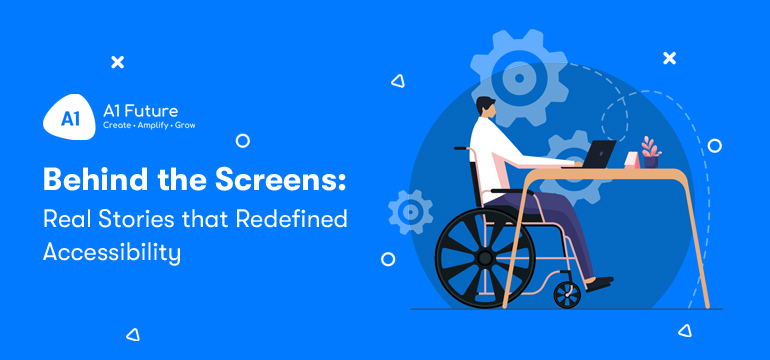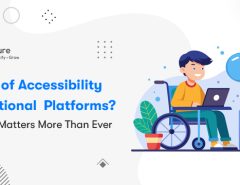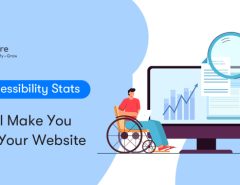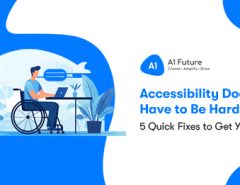Websites are supposed to make life easier, not harder, Agreed?
Consider walking into a store where the aisles are too narrow for your cart and the price tags are written in a secret language. Sounds ridiculous, right? Well, that’s pretty much the online experience for a lot of people with different kinds of Impairments. Buttons they can’t click, menus they can’t navigate, and checkout forms that might as well be hieroglyphs.
Enough with the negativity though, here’s some good news: Businesses are finally waking up.
They’re realizing that once you look past the fog, Accessibility is a Game-Changer. The companies that get it right are also boosting their revenue, growing their customer base and earning major respect in the process.

Today, we’re going Behind The Screens with some real stories of businesses that went from “oops” to “oh wow!” and why your Website might be next.
1. Domino’s: The Pizza Problem That Shook the Internet

Let’s start with one of the most famous cases: Domino’s Pizza vs. Accessibility.
Craving pizza but can’t order it?
That’s the frustration Guillermo Robles, a Visually Impaired man, faced when he tried to order a pizza online from Domino’s.
No alt text, no screen reader compatibility, and zero accessibility features on their site or app. It wasn’t just inconvenient — it was impossible for him to place an order.
So, Guillermo did what anyone would do when denied pizza — he sued them.
The result? Domino’s and thousands of other companies had to take Accessibility seriously.
Lesson for You: If even Domino’s had to comply, so do you. Avoid the legal heat by making your site accessible now.
👉 Pro Tip: Check out our full blog on the case: “The Domino’s Effect”
2. Target: From Lost Shoppers to Loyal Customers
Have you ever tried to shop online, only to give up halfway because the Website was a hot mess? Imagine how much worse that experience is for someone who can’t see the images, can’t hear the video descriptions, or can’t click tiny buttons.
Enter Target.
A few years back, Target’s website had the same problem. Visually impaired users couldn’t navigate the site properly. So what did they do? They filed a class-action lawsuit against the retail giant.
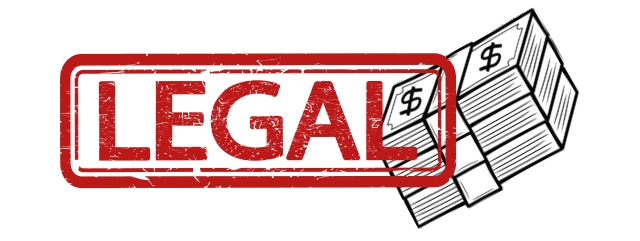
And it wasn’t a small one — Target had to pay a $6 million settlement. Ouch.
Although after stumbling once, they tied their shoe-laces and this time, the right way. They fixed their Website. They made it screen reader-friendly, added descriptive alt text to all their images, and enhanced their site’s usability for everyone. Suddenly, their online store was open to millions of new shoppers.
The impact? More customers. More sales. More loyalty. When people see that you care about them, they care about you.
Lesson for You: Why wait for a lawsuit? Make your website usable for everyone from the start.
3. Be My Eyes: How a Small App Won Big With Accessibility
Here’s proof that you don’t have to be a Corporate Giant to win big.
Take Be My Eyes, a simple app with a powerful idea. The app connects Visually Impaired users with Sighted Volunteers via video calls. Need help reading a label or picking the right outfit? Call a volunteer, and they’ll be your eyes — in real time.
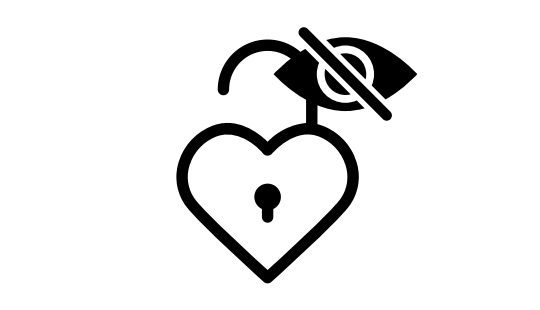
The result?
- Millions of Downloads
- Thousands of 5-star reviews
- Investor love and Global Recognition
Be My Eyes didn’t just win awards — it won hearts (and wallets).
Lesson for You: Accessibility isn’t just for big brands. Even small businesses can make a big impact. The goal is simple: Build trust, build loyalty, and watch the revenue follow.
4. Airbnb: The SEO Boost You Didn’t See Coming
Airbnb isn’t just a place to find cool vacation homes — it’s a masterclass in digital transformation. As part of its user experience upgrades, Airbnb made Accessibility a Top Priority.
They added features like:
- Alt text for images (so screen readers could describe the beautiful vacation homes)
- Keyboard navigation (so users could book with ease)
- Captions for video content (so users with hearing impairments wouldn’t miss a thing)
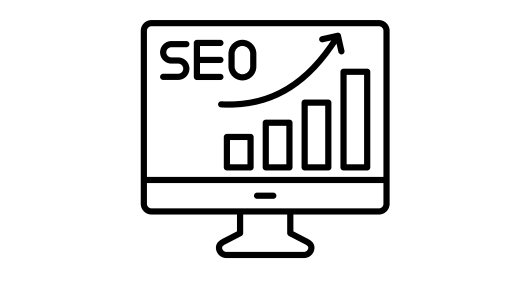
Here’s where things get interesting: These changes didn’t just help users with disabilities. They boosted Airbnb’s SEO rankings. Google loved it. Suddenly, their website was getting more traffic from Search Engines, and their bookings increased. Coincidence? We think not.
Lesson for You: Inclusivity isn’t just good for people — it’s great for Google. Want better rankings? Make your site accessible.
5. Winn-Dixie: The Lawsuit That Cost Millions
Sometimes, businesses learn lessons the hard way — and for Winn-Dixie, a major Supermarket chain, that lesson cost a fortune.
A man named Juan Gil, who had Visual Impairments, tried to use the Winn-Dixie website but couldn’t navigate it. No screen reader support, no Accessible buttons — just digital dead-ends everywhere.
What did he do?
He sued.

The court ruled in his favor, and Winn-Dixie had to rebuild their site from scratch. Add to that the hefty legal fees, and you’re looking at a nightmare no business owner wants to face.
Lesson for You: It’s cheaper to do it right the first time than to pay for legal settlements and rebuild your website later.
How You Can Go From Frustration to Success Too
Here’s how you can be the Airbnb (Proactive) of your industry instead of the Winn-Dixie (Reactive) and take your website from “meh” to “magnificent”
1) Get an Accessibility Checkup
Think of it as a health check for your website. An accessibility audit will flag:
- Missing alt text
- Poor color contrast
- Hard-to-click forms and buttons
Pro Tip: You don’t have to do it alone. A1 Future Technologies offers a FREE Accessibility Audit. We’ll check your site and give you a clear report on what’s missing — no guesswork required.
2) Play by the WCAG Rulebook
The WCAG tells you what to do to ensure your site works for all users — screen readers, keyboard navigators, and even voice control devices.
Feeling overwhelmed?
Let A1 Future Technologies handle it. Our accessibility experts live and breathe WCAG compliance, so you don’t have to. We’ll make sure your site checks every box.
Don’t be the next Headline. Be the next Success Story.
The common thread in these stories? The businesses that waited for lawsuits (like Winn-Dixie) paid dearly. The companies that took proactive steps (like Airbnb and Be My Eyes) became industry role models.
The choice is yours:
- Wait for a lawsuit and risk losing big
- Or make your site accessible and win customers, traffic, and brand loyalty
And if you’re not sure where to start, A1 Future Technologies has your back. From Accessibility Audits to full compliance support, we’ll make sure your site is open to everyone.
The game has changed. It’s your move.

